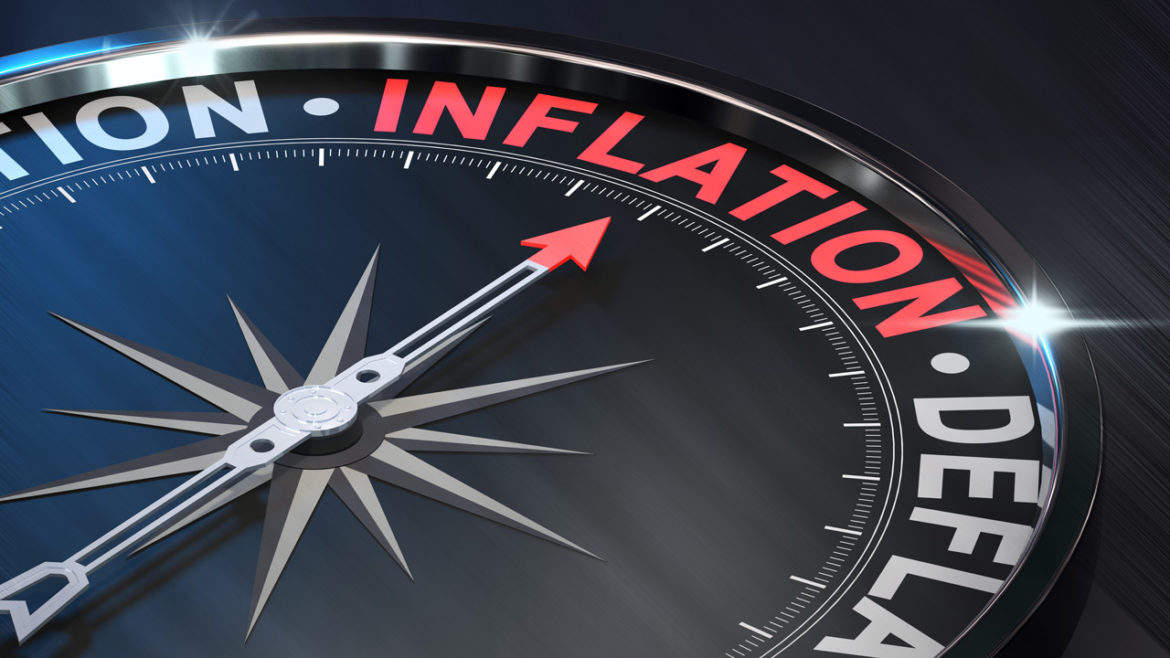Gold has all the potential to go unprecedentedly high. But silver will be gold on
Site:
Precious metals news
 Fed’s Favorite Inflation Indicator - Core PCE Deflator - Fell to +3.5% Yoy in October From +3.7%
Fed’s Favorite Inflation Indicator - Core PCE Deflator - Fell to +3.5% Yoy in October From +3.7%Nov 30, 2023 - 05:56:27 PST
The Federal Reserve's preferred inflation gauge, the Core PCE Deflator, dropped to 3.5% year-over-year in October, its lowest since April 2021, from 3.7% in September. The headline PCE also decreased to 3.00% YoY, under the expected 3.1%. Both income and spending growth have slowed, with income growth at its slowest since December 2022 (4.5% YoY) and spending growth at its slowest since February 2021 (5.3% YoY). The savings rate saw a minor increase from a revised 3.7% to 3.8% in October. This data raises questions about whether consumers are beginning to cut back or simply reaching their credit limits.
ChatGPT
A recent analysis using government data reveals that the typical American household now needs an extra $11,434 annually to maintain the same standard of living as in January 2021, before inflation hit 40-year highs. This financial burden persists despite a receding inflation rate and a strong economy indicated by low unemployment. The analysis, conducted by Republican members of the U.S. Senate Joint Economic Committee, highlights the ongoing struggle of many families amid economic growth. Rising living costs and inflation are key reasons behind Americans' economic pessimism.
Nov 30, 2023 - 05:35:47 PST
Under President Biden, inflation remains high, with significant increases in food, used cars, and rent prices since 2020. Food prices rose by 25%, used cars by 35%, and rents by approximately 20%. A survey revealed that the average weekly cost of food for a four-person household increased from $238.32 in 2020 to $315.22 in 2023, a 32% jump. Food CPI peaked in August 2022 at 11.33% and has been decreasing as M2 Money growth slows down. Despite these trends, President Biden attributes high prices to factors other than his administration's policies.
Nov 30, 2023 - 05:22:42 PST
The BEA revised third-quarter GDP growth from 4.9% to 5.2%, but the Gross Domestic Income (GDI) stands at only 1.5%, highlighting a significant discrepancy. This difference raises questions about the economy's strength, as GDI often receives less attention. Despite higher GDP figures, the lower GDI suggests potential economic weakness, possibly nearing recession. This contrasts with the more optimistic public perception of the economy based on GDP growth alone.
The percentage of yield curve inversions in the Treasury market, an indicator often used to predict economic recessions, has recently risen to nearly 90%, signaling a potential recession ahead. This increase comes after a brief period of decline. It's important to remember that just because a recession hasn't yet occurred doesn't mean the probability of it happening has diminished. The Treasury market's current state suggests that the risk of a recession remains high.
During a recent interview at the 2023 Precious Metals Summit Zurich event, Doom, Boom & Doom Report publisher Marc Faber says now is the time to buy gold, silver and platinum because inflation is here to stay.
 Family Offices Move Cash Out of Stocks and Into Private Markets Such as Commodities
Family Offices Move Cash Out of Stocks and Into Private Markets Such as CommoditiesNov 30, 2023 - 05:09:53 PST
Family offices, which manage investments for families typically with assets of $100 million or more, are increasingly investing in private markets rather than public stocks, even amidst market rallies. This shift highlights a significant change in their investment strategies. The focus is not just on private markets; these offices are also expanding their interests into alternative assets like real estate and commodities.
Tuesday's auction of $39 billion in 7-year Treasury notes received weak demand, marking a notably poor reception compared to expectations set earlier in the day. Primary dealers absorbed a significant portion of the notes, indicating lackluster interest from a broader range of investors. This follows a pattern of varied responses to recent Treasury sales, including Monday's somewhat tepid $54 billion offering of 2-year notes and a more successful $55 billion sale of 5-year maturities. The overall market reaction saw most Treasury yields, particularly the 2-year rate, remaining generally lower after the auction results were announced.
Gold & Silver finally BROKE OUT above long-term critical levels... so what's next?? Well, if the U.S. Treasury continues to pump $170 billion a month of new debt into the U.S. Economy, that will turn out to be extremely inflationary and thus bullish for the metals...
Gold futures have recently surged to their highest levels since August 2020, marking a significant turnaround from a previous bearish trend. This shift is highlighted by the emergence of a bullish indicator known as a "golden cross." This technical pattern occurs when a short-term moving average, such as the 50-day moving average, rises above a longer-term moving average, like the 200-day moving average. This crossover is often interpreted by investors as a sign of increasing momentum and potential for further price gains in the gold market.
Amid market uncertainty, investors are holding record amounts of cash, reflecting skepticism about the economy's health despite official positive statistics. The stock market's optimism is driven more by expectations of Federal Reserve rate cuts rather than true economic strength. With concerns about the long-term value of cash due to inflation and credit risks, there is increasing interest in gold as a stable and potentially more profitable alternative. Investors are looking for a catalyst to shift from conventional assets to precious metals like gold, seeing it as a safer option in uncertain economic times.
 Mixing the Economic Elements for Crude Oil to Surge to $150 and Dow 20,000: Rickards
Mixing the Economic Elements for Crude Oil to Surge to $150 and Dow 20,000: RickardsNov 29, 2023 - 08:13:03 PST
The escalating tensions in Ukraine and Gaza could potentially trigger a sharp increase in oil prices, potentially reaching $150 per barrel. This surge could induce a significant economic downturn, echoing the effects of past oil crises. Additionally, these geopolitical conflicts might precipitate a drastic drop in the Dow Jones index, similar to previous economic slumps caused by similar events. For instance, a severe downturn could lead to a decline in the Dow Jones index comparable to a 45% fall experienced during the 1974 recession, equating to a drop of over 15,000 points from current levels.
Americans are increasingly tapping into their savings to maintain their lifestyles amid rising living costs. Recent Morning Consult polling reveals a significant decrease in adults who can cover six months of expenses with their savings compared to last year. Additionally, about 21% are unsure how long their savings will last, up from 15.5% in July 2022. This trend reflects a desire to preserve consumption patterns, even at the cost of dwindling savings, and contributes to ongoing economic uncertainty and pessimistic sentiment.
Despite widespread economic concerns, consumer spending remains high, with record Black Friday participation and holiday spending predicted to reach $966.6 billion. However, this surge is fueled by "doom spending," where over a quarter of Americans spend mindlessly due to economic anxieties. Particularly among younger generations, this trend leads to rising credit card debt, now exceeding $1 trillion. Experts warn of the long-term negative impact on financial stability, urging a shift towards more prudent financial management.
Nov 29, 2023 - 06:26:13 PST
Hedge fund manager Bill Ackman anticipates the Federal Reserve may start cutting rates as early as the first quarter of 2024, sooner than the market's mid-year expectations. Ackman cites signs of economic weakening evident in some of his companies. He argues that maintaining mid-5% interest rates with inflation below 3% results in high real interest rates, negatively impacting the economy. The shift from low to higher interest rates, especially for fixed-rate debts in businesses and real estate, could lead to a "hard landing" if rate cuts don't occur soon.
 Global Economic Slowdown Expected in Upcoming Year Due to Inflation, Elevated Rates, and War
Global Economic Slowdown Expected in Upcoming Year Due to Inflation, Elevated Rates, and WarNov 29, 2023 - 06:11:02 PST
The global economy faces a bleak 2024, with growth slowing to 2.7%, the lowest since 2020, due to ongoing wars, high inflation, and continued interest rate hikes. The U.S. and China, key economic drivers, are both expected to see reduced growth, further dampening the global outlook. The U.S. growth is projected to drop to 1.5%, and China's to 4.7%. The eurozone is also set for a slowdown, with just 0.9% growth anticipated. This paints a picture of a challenging year ahead, with significant risks of economic stagnation.
 Revised Q3 GDP Figures Show 5.2% Rise, Boosted by Government Expenditure as Private Spending Falls
Revised Q3 GDP Figures Show 5.2% Rise, Boosted by Government Expenditure as Private Spending FallsNov 29, 2023 - 06:05:14 PST
The US Bureau of Economic Analysis reported that the revised Q3 GDP growth rate was 5.2%, the highest since Q4 2021 and above initial estimates. This growth was mainly due to increased government spending, which contributed 0.94% to GDP, and inventory investment. However, personal consumption's contribution decreased slightly compared to the previous quarter. Corporate profits also rose in Q3, with significant gains in both financial and nonfinancial sectors. Despite these positive figures, concerns about long-term economic stability remain.
The US Federal Reserve is facing significant operating and capital losses, raising concerns about its financial stability. These losses, potentially as high as $100 billion, are due to high-interest rates impacting its bond portfolio and increased expenses. There is a growing debate about who will bear the cost of these losses, with many analysts suggesting that American taxpayers may ultimately be responsible. This situation underscores the potential financial burden on US taxpayers due to the Fed's current financial challenges.
Nov 29, 2023 - 05:36:44 PST
ChatGPT
Growing support in Washington for a commission to address the U.S.'s $34 trillion debt faces skepticism amid congressional divisions. The proposed fiscal commission would explore debt reduction, but its effectiveness is uncertain, echoing past efforts like the 2010 Simpson-Bowles commission. Key lawmakers question the proposal's feasibility, citing political disagreements, especially regarding spending cuts and revenue. Despite these doubts, public surveys show strong bipartisan support for the commission, aimed at finding long-term fiscal solutions and addressing mandatory spending programs.
Nov 29, 2023 - 05:32:38 PST
The aggressive monetary tightening has severely impacted US high-risk borrowers who previously depended on low-interest rates. With rates now around 5%, companies with leveraged loans linked to floating rates are struggling with liquidity issues. The LSTA Leveraged Loan index shows a steep drop in earnings growth and a significant decline in the average EBITDA to interest expense ratio. This scenario suggests heightened risk, especially for businesses heavily reliant on floating rate-leveraged loans, as they now face severe challenges in the current high-rate environment. A potential downturn could exacerbate these risks significantly.







